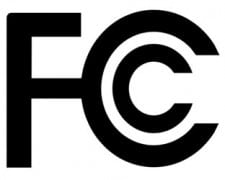 Two winning bidders for FM construction permits were late getting their Form 301 paperwork in to the FCC on time. This failure carries the possibility of losing the CP and making a default payment. But in both cases, the FCC found cause for leniency.
Two winning bidders for FM construction permits were late getting their Form 301 paperwork in to the FCC on time. This failure carries the possibility of losing the CP and making a default payment. But in both cases, the FCC found cause for leniency.
In the case of Alfred L. “Pat” Roberson, winner of a CP for a new FM in Elaine AR, at the last minute before the filing deadline for the Form 301, its transmitter site fell through, despite reasonable assurances that it would be available when it was time to construct the station.
Roberson’s form arrived at the FCC about a month late along with a request for a waiver of the deadline.
The FCC was not pleased that it did not receive any communication on the topic until it received the late-filed form and the waiver request, but it did note that up until that point Roberson had been entirely compliant with the process. It also noted that the sudden loss of the transmitter site was grounds for a waiver.
It decided it was in the public interest to keep the CP with Roberson rather than put it up for auction again, and hit him with a $3K fine for failure to timely file a required form.
The other case involved Northway Broadcasting LLC, winner of FM CPs in Blyth CA, Fernley NV, Silver Springs NV and Poultney VT.
In Northway’s case, it was going along just fine until, at the last minute, it realized it was not qualified to complete the Form 301 without the assistance of counsel – it had erroneously thought that its consulting engineer was going to be able to handle the task.
It got counsel on the job instantly, but was not able to get the necessary documentation to the FCC until a day past deadline.
The FCC again noted that prior to the error, Northway had been in complete compliance with the rules, and added that the inadvertent error fell within the bounds of events for which a waiver might be considered. It noted that Northway made strenuous efforts to correct its delinquency, and stated that it was in the public interest to allow the company to continue its efforts to get the stations on the air.
It also decided that one rather than four late filing fines was in order, and hit it with a notice of apparent liability for $3K.
RBR-TVBR observation: Both cases demonstrate a fact worth remembering by all FCC licensees, and that is that candor is the best policy. Both licensees in the immediate cases received the benefit of the doubt in part because they had been playing strictly by the rules up until they had their Form 301 delinquencies. The FCC said this was a major factor in its determination to allow both to keep the CPs.




